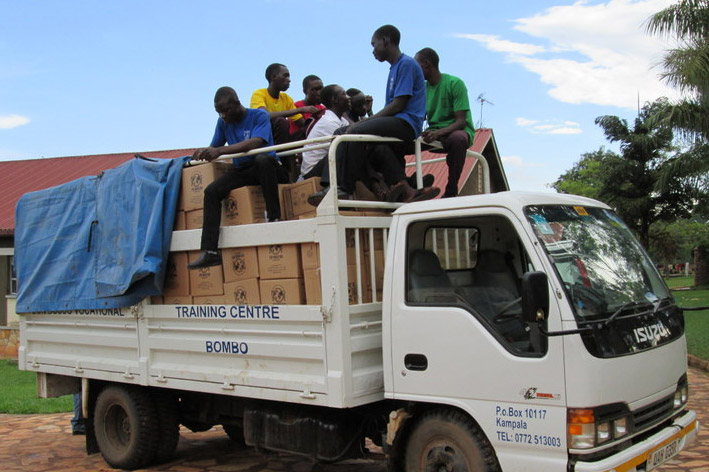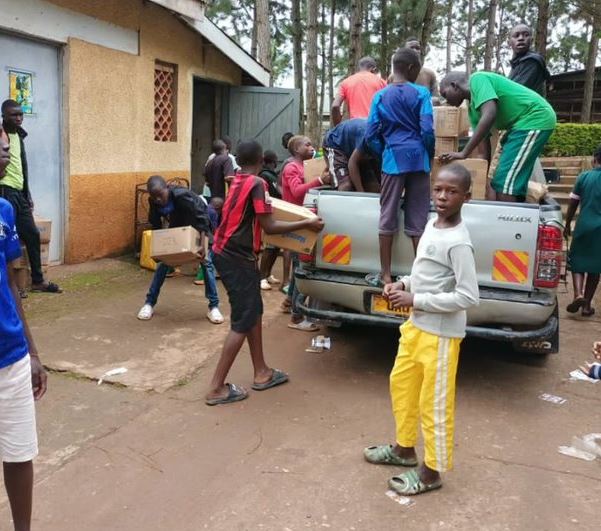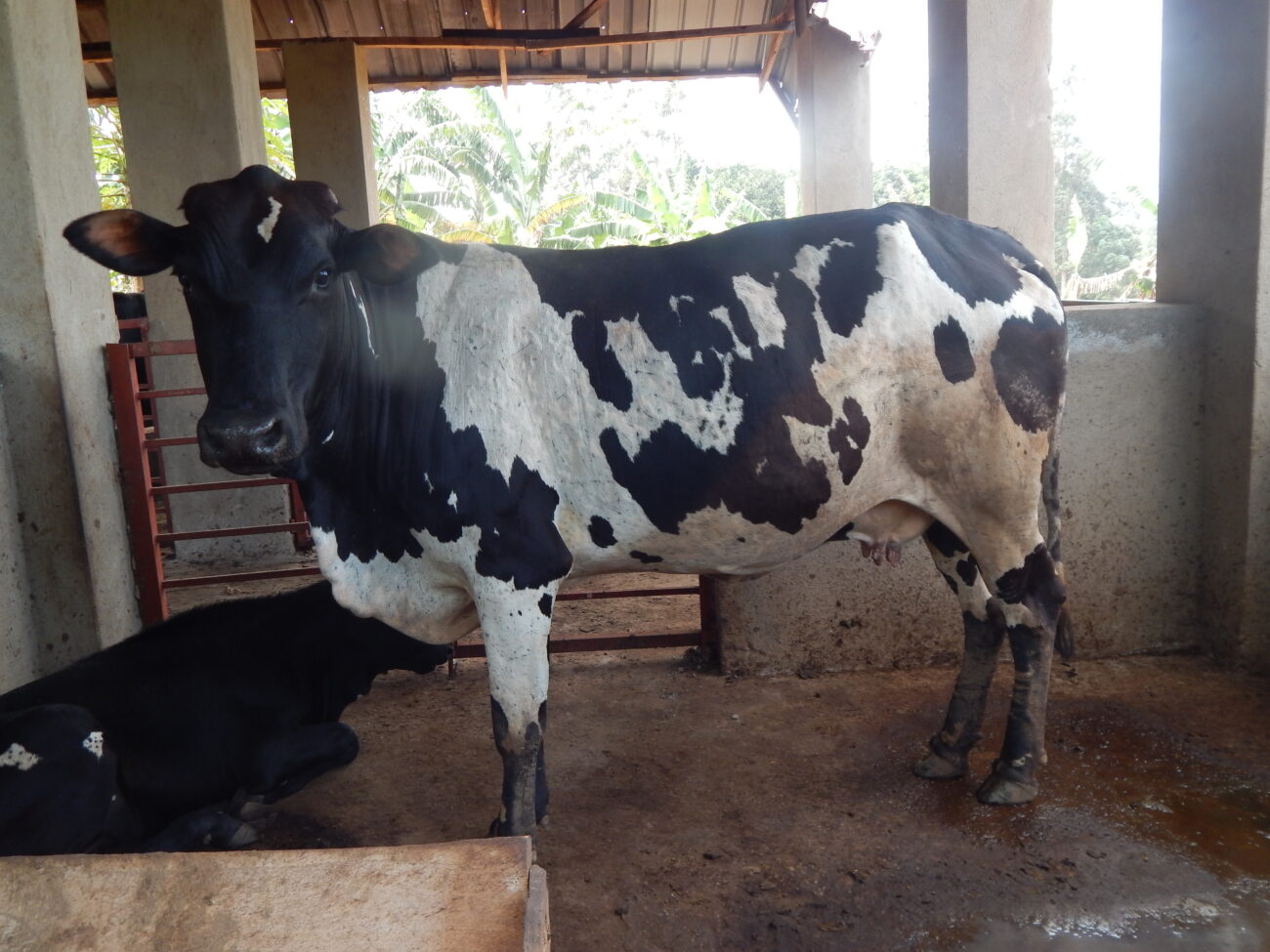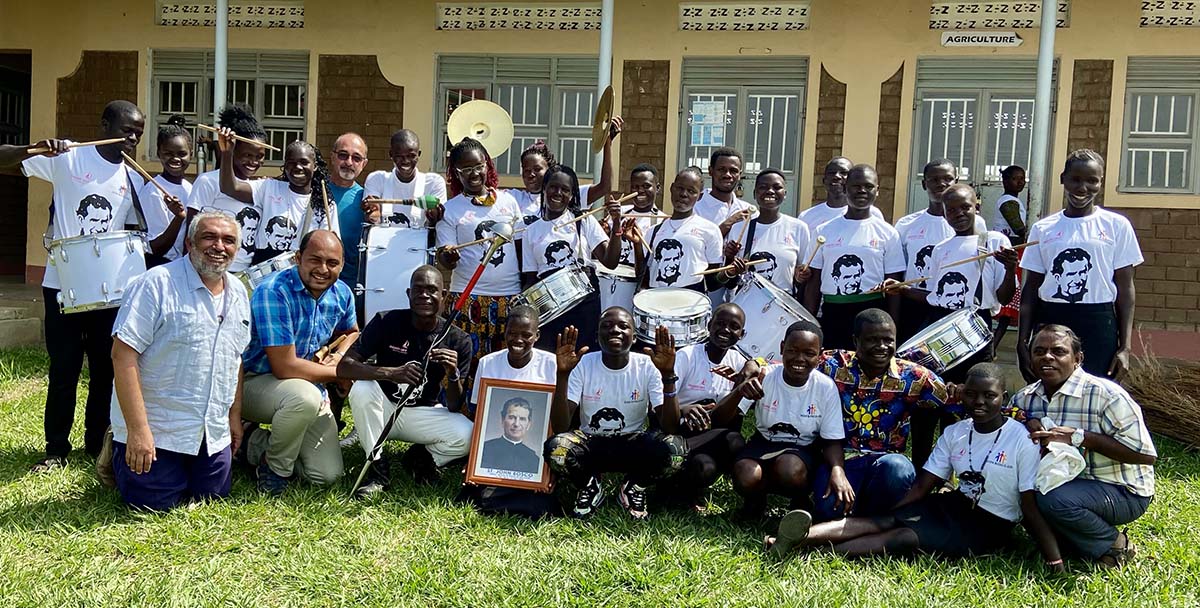UGANDA: Salesian Students Have Better Nutrition Thanks to Rice Meals Donation from Stop Hunger Now

(MissionNewswire) More than 950 students have access to better nutrition thanks to a recent donation of fortified rice-meals to two Salesian programs in Uganda. The donation was made possible through an ongoing partnership between Salesian Missions and Stop Hunger Now, an international relief organization that provides food and life‐saving aid to the world’s most vulnerable.
Don Bosco Children and Life Mission, located just outside of Kampala, the largest city and capital of Uganda, was the primary recipient of the rice-meal donation. Through an educational program at the mission, more than 200 at-risk boys aged 8 to 17 have access to primary, secondary and technical education along with sports programming, youth clubs, guidance counseling and life skills training. The rice meals were also shared with the Salesian-run Children’s Project in Luweero, a town in Central Uganda.
The meals are provided to students during the school day and serve as an incentive for families to send their children to school. As a result of the donation, students are thriving. Many have gained weight, suffer fewer illnesses and are more focused on their studies. Teachers are seeing better student performance in class and the two programs have increased enrollment rates as a result of the feeding program.
“Access to nutritious meals allows youth to be better prepared to take part in school activities and focus on their education,” says Father Mark Hyde, executive director of Salesian Missions, the U.S. development arm of the Salesians of Don Bosco. “Prepared students are more likely to learn valuable skills that will help them gain employment, break the cycle of poverty in their lives and enable them to give back to their communities.”
Included in the shipment of rice meals, coordinated by Salesian Missions, were donated books and soap as well as a box of sports equipment donated by the soccer team at Oswego State University in New York. The sports equipment donation was facilitated by Paul Kwoyelo, a student at the university and member of its men’s soccer team. A former student of the Salesian-run St. Mary’s School in Uganda, Mr. Kwoyelo was eager to do something to support the Ugandan students.
“It’s been said to never forget where you came from and I was a student at St. Mary’s seven years ago,” said Kwoyelo in a note he sent to the students with the donation. “The Don Bosco community has played a big role in my life. Throughout my four years at St. Mary’s, I grew as a student, a Christian and a friend. I currently reside in the United States where I am studying computer science at a university. I find myself always reflecting over the wonderful times I had at St. Mary’s. I vividly remember the time when a package was delivered to the boys boarding from the United States. The package brought smiles to everyone’s faces and I have forever cherished that momentous occasion.”
“In the past few years, I have been fortunate enough to have met some great people in the U.S, including my coach and the Oswego State men’s soccer team,” added Kwoyelo. “With the collaboration of these generous individuals, we were able to put together a package with the goal of making annual shipments to specific locations. I hope this package brings the same joy I once had, back when I was a student, and I hope it motivates everyone to keep working hard.”
Close to 67 percent of Ugandans are either poor or highly vulnerable to poverty, according to UNICEF. While the country has seen some economic growth as well as improvement in its Human Development Index ranking over the last 20 years, the country still ranks near the bottom at 161 out of 186 countries. After decades of war left many displaced, the people of Uganda face many significant challenges as they work to rebuild their country.
Approximately 86 percent of Uganda’s 34 million inhabitants make their living farming but nearly 40 percent of Ugandans lack access to clean water for work and household use. Uganda’s literacy rate has improved with 73 percent of the population literate but only 23 percent of Ugandans go on to acquire a secondary education. According to UNICEF, one of the biggest challenges in the country is combating the serious increase of HIV/AIDS that has left millions of children orphaned.
###
Sources:
UNICEF – Uganda




